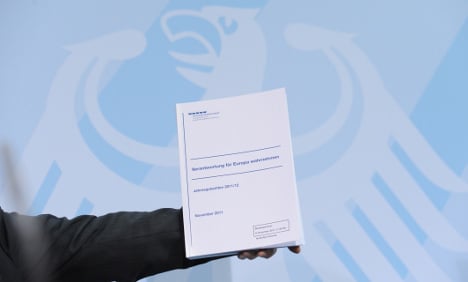The so-called “Five Wise Men and Women” or German Council of Economic Experts predicted that Gross Domestic Product growth will slow to just 0.9 percent next year from an anticipated 3.0 percent in 2011 in their latest updated forecasts.
“At 3.0 percent, the GDP growth rate for 2011 will be very strong once again, even if it will not quite be able to maintain the momentum seen in 2010,” when it topped 3.7 percent, the experts wrote.
The risks to growth have increased in recent months, resulting from a fragile global economic environment and the “vicious circle of sovereign debt and banking crisis” that the euro area has been caught up in.
The panel’s forecasts are in line with the government’s own projections – published last month – which saw growth slowing from 2.9 percent this year to 1.0 percent next year.
Nevertheless, the council’s president Wolfgang Franz cautioned that the forecast was made on the assumption that the debt crisis would be resolved.
“If the escalation of the crisis is confined to the euro area, output will grow in 2012 by just 0.4 percent. If global distortions concurrently lead to a stagnation of world trade, Germany will experience a slight decrease in GDP in 2012,” he said.
A raft of recent data, including sentiment surveys as well as output indicators, all suggest that Germany, Europe’s economic engine, is running out of steam.
The latest manufacturing orders and industrial output data disappointed and key confidence barometers, such as the Ifo business climate index and the ZEW and GfK surveys, are all heading southwards.
The all-important automobile sector is suffering too, notching up growth of a meagre one percent last month.
Exports are the main driver of growth in Germany and new data showed them a a record high in September, pushing the trade surplus to a three-year high in September.
That is because Germany is reaping the benefits of a deep economic restructuring that has made its companies more competitive on the world stage. But analysts insist that a possible recession in the 17 countries that share the euro will not leave Germany unscathed.
AFP/mry



 Please whitelist us to continue reading.
Please whitelist us to continue reading.
Member comments